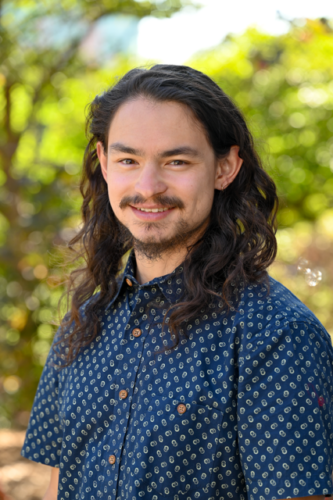This piece is part of an ongoing series focused on the themes of “connection” and “community.” Follow the blog or check our Facebook page to see the other posts in the series as they’re published.
“Can businesses be good and ethical?” I once asked a mentor, the founder of a realty company in urban Pennsylvania.
“I think so” he said. “Businesses can be bad at times, but the business-customer relationship also creates a certain level of parity that otherwise doesn’t always exist in society. I also think businesses can do good and play a positive role in the community.”
A year later I asked another mentor the same question.
“I don’t think so,” he said. “I think businesses are mostly only interested in their bottom line and capitalism pushes them to do what is best for their own profits.”
Both mentors were strong, progressive Christians who I admired. Yet, their responses felt incomplete. Now, I have the chance to interrogate that question myself at the highest level of corporate engagement and faith advocacy.

Climate change and energy company practices have rocked the commercial fishing industry in Plaquemines Parish and other spots in South Louisiana. (Photo by Mike Ferguson)
I recently joined the Office of Faith-Based Investing & Shareholder Engagement of the PCUSA. Our office staffs the Committee on Mission Responsibility Through Investment (MRTI).
The long and short of our work is that the denomination has billions of dollars invested in the stock market for things like foundational endowments and pension funds – mainly through the Presbyterian Foundation and the Board of Pensions of the Presbyterian Church U.S.A. Our office engages the corporations that the denomination is invested in to try to change their actions to be more in line with the Church’s policy and values. This has included engagements with oil and gas companies on climate change, with airlines on human trafficking prevention, and with retail pharmacies on reproductive health, amongst many others.
Standing at the intersection of faith and finance, our work lives in the inherent tension between faith and capitalism. We use our tools and responsibility as shareholders, an inherently capitalistic role, to advocate with companies who, yes, may only be interested in their bottom lines.
But we also have opportunities to bring the voices of communities impacted by corporate actions into engagements with those companies. More faith and values-based investors are prioritizing hearing from communities. In our work, this has included meeting with communities in Louisiana impacted by operations of oil and gas companies which contribute to flooding and climate change damage. Then we incorporated what we learned into our engagement with the offending companies. More recently, we’ve also joined worker-lead movements to change the way that dollar store companies treat and pay their employees.

The Rev. Tyronne Edwards speaks to members of the Committee on Mission Responsibility Through Investment at a nearly abandoned marina Friday. (Photo by Mike Ferguson)
This work isn’t always easy. On one hand, some companies refuse to even meet with communities impacted by their actions. But that gives us the chance to bring community-centered approaches where there may be none. On the other hand, some communities want us to push companies to do things that we simply do not have the power to implement. Shareholder engagement can be a powerful tool, but is a limited one.
Living in this tension is part of being a faithful servant. Hearing from those seeking reform and doing our best to bring those voices and experiences to those that need reform is a core part of our calling.
I hope to one day find the answer to my original question. It likely will be nuanced and complicated.
Let’s get to work.
 Simon Doong serves as the Associate for Corporate, Community and Church Engagement for the PCUSA’s Office of Faith-Based Investing & Shareholder Engagement. He also co-hosts A Matter of Faith: A Presby Podcast for the denomination.
Simon Doong serves as the Associate for Corporate, Community and Church Engagement for the PCUSA’s Office of Faith-Based Investing & Shareholder Engagement. He also co-hosts A Matter of Faith: A Presby Podcast for the denomination.